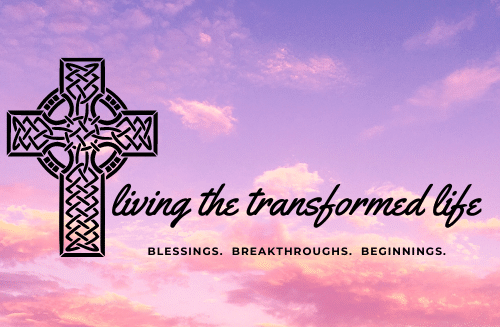 Does America Have A Mental Health Crisis?
Does America Have A Mental Health Crisis?
Not so long ago, mental health was not a proper topic of conversation for most people. The pandemic of 2020 changed all that. Years later, many people are still struggling with mental and emotional problems as a result of the lockdown.
One definition of mental health is “health conditions including changes in emotions, thinking, and/or behavior associated with distress and/or problems in social or occupational functioning.” Yes, it’s a mouthful, but you can see evidence of this every day– just take a look at the evening news. There are many people who just aren’t coping well. If you find yourself struggling, you are not alone.
If news stories don’t convince you that there’s a problem, perhaps the latest statistics will. Nearly 1 in 5 Americans live with a diagnosed mental health condition. The most common conditions are depression and anxiety. More than 19 million Americans (or 8% of the population) have had at least one major depressive episode in the last year, and over 40 million Americans (an astounding 20% of the population) have an anxiety disorder.
In short, America is facing a mental health crisis.
Scientists used to believe that depression and anxiety were caused by a chemical imbalance in the brain, but recent research is challenging that belief. Now we are told that there may be multiple causes, including genetic vulnerability, side effects of multiple medications, stressful life situations, and/or exposure to traumatic events (such as a pandemic, obviously).
 What Are The Symptoms of Depression and Anxiety?
What Are The Symptoms of Depression and Anxiety?
Symptoms of depression include:
- feeling sad, weepy, empty, hopeless
- irritability or frustration, angry outbursts
- loss of interest in activities
- appetite and weight changes
- changes in sleep patterns
- general tiredness, lack of energy
- slowed speaking, thinking, or movement
- trouble concentrating and remembering
- unexplained physical discomfort
- suicidal thoughts
Symptoms of anxiety include:
- feeling restless, agitated, on edge
- easily fatigued
- difficulty focusing on tasks
- generalized irritability
- muscle tension
- difficulty with worried thoughts
Anxiety sometimes leads to panic attacks, characterized by:
- unexpected recurring periods of intense fear which comes on suddenly and peaks in minutes
- heart palpitations, rapid heartbeat
- sudden sweating
- shaking, trembling
- shortness of breath
- irrational fear of impending doom or death
 Times — And Treatments– Have Changed
Times — And Treatments– Have Changed
In the past, the general treatment for those who suffered these symptoms was lengthy (sometimes permanent) institutional stays and barbaric procedures. But there have been amazing strides in improving treatment options so that hospitalization is often the last resort now, rather than the first or only. Modern treatment is multifaceted, usually a combination of medications and therapeutic counseling.
Another welcome change is that there has been a decrease in stigmatization. In the past, mental illness was considered a defect rather than a disease. The negative attitudes, beliefs and behaviors of the general public toward people living with mental illness led to stereotypes, prejudice and discrimination. Often this stigmatization would lead to internalized shame which interfered with the recovery process.
Thankfully, most people today are better educated about mental health, and the need to hide mental struggles has significantly lessened. But many people are still reluctant to seek help or intervention, so there is still a need to fight the old myths with facts. Remember, too, that change begins with our own attitudes and beliefs, and seeking help becomes a more acceptable action as we share our own stories.
The Mental Health Spectrum
According to Dr. Jennifer Charles of the National Catholic Partnership on Disability (ncpd.org), there are four levels on the mental health spectrum:
- POSITIVE mental health = a good work/life balance
- AVERAGE mental health = functioning well, but not excelling
- SUB-OPTIMAL mental health = impacting on life and work performance
- POOR mental health = requiring professional support
So, how’s your state of mind? Where would you say you fall on this mental health spectrum?
There was a time in my life when I was on the POOR end of the scale. But I’ve since received much healing from the Lord, and most days I would now put myself on the POSITIVE end. That’s not to say I don’t have a problem now and then. For instance, I still have a hard time with gray, dreary days (I’m grateful to my daughter-in-law for my lightbox!)
Then there are the days where my brain is full of static, as if there’s an electrical storm in my head. I’ve learned that extra rest will usually bring the level of depression down on those days. I don’t feel guilty about those unproductive days, because I know that self care is neither selfish nor a waste of time. You do what you have to do. You learn to cope.
And if you are a Christian who battles mental illness, you also learn to hope. Ours is the God who can calm the storm, who can bring peace to any situation. Call out to Him, and don’t be afraid to find a trusted brother or sister to help share your burden. Take advantage of mental health counseling and resources that are available. Do not fight this alone– get the help you need. I’m so glad I did!

One of the best things you can do to strengthen your mental health is to begin reading the Bible daily. As you renew your mind by reading the Word of God, you will begin to find verses and promises coming to your remembrance on those dark days.
Look for specific verses related to mental health. Get a nice journal and write them out; the physical process of writing stimulates certain areas of the brain that control recall. Believe me, you’ll find this tremendously helpful. A fellow Christian blogger named Starla, who is a trained Bible counselor and professional life coach, has a free printable called “Bible Verses For Mental Health” which I highly recommend. You can find it here: https://coffeewithstarla.com/bible-verses-for-mental-health/.
Depression may be something I’ll always have to fight. But with Jesus, it’s a battle that I’m winning. And you can, too.
Has this been helpful? Leave a comment– share on social media– subscribe!
Related Posts:
“The Bible and Mental Health” https://www.livingthetransformedlife.com/the-bible-and-mental-health
“”God Cares About Mental Health!” https://www.livingthetransformedlife.com/god-cares-about-mental-health
“What You Need To Know About Depression” https://www.livingthetransformedlife.com/what-you-need-to-know-about-depression

 What Are The Symptoms of Depression and Anxiety?
What Are The Symptoms of Depression and Anxiety? Times — And Treatments– Have Changed
Times — And Treatments– Have Changed